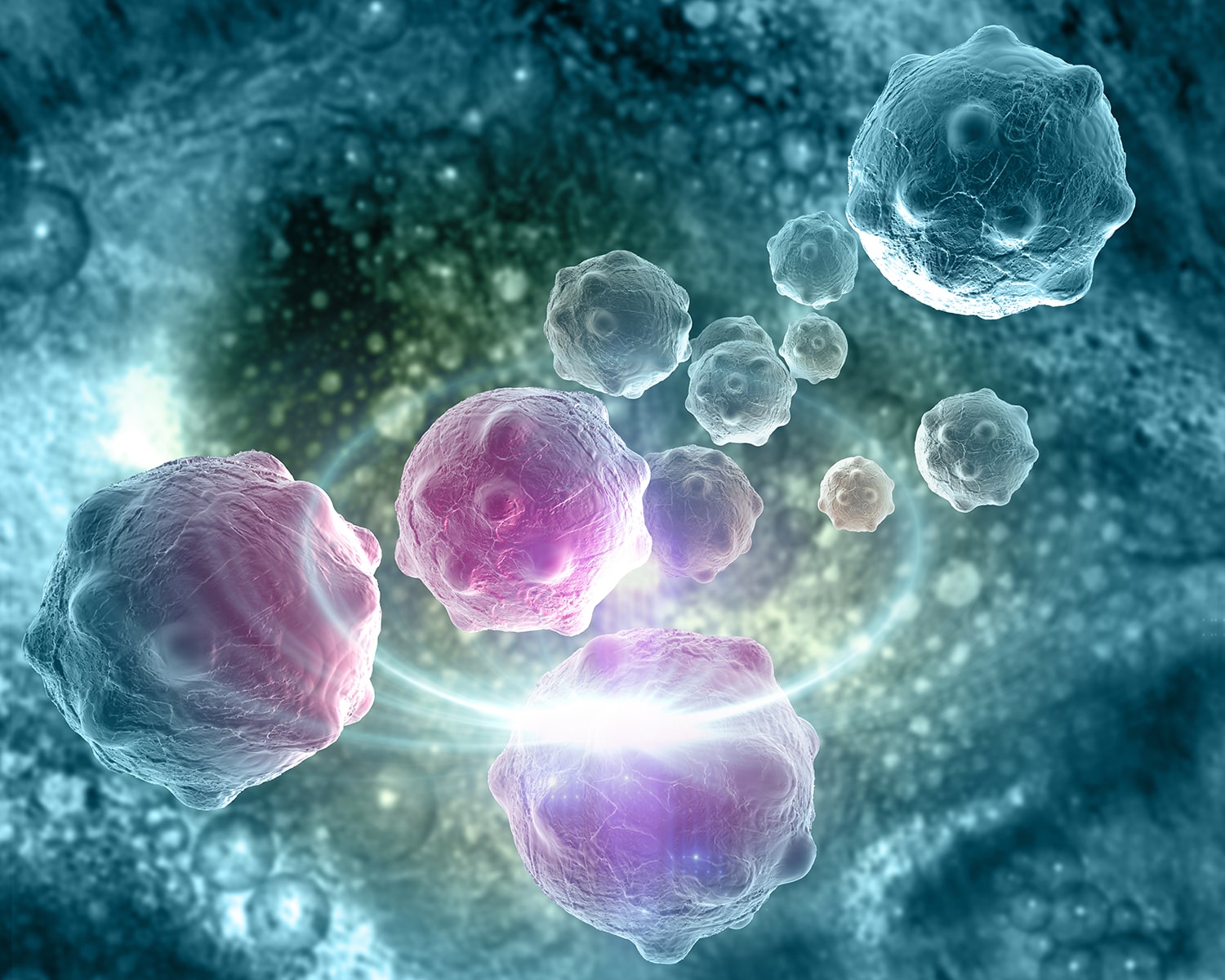Unintended Targets
Targeted cancer therapies interfere with the function of proteins in cancer cells that are essential for proliferation. A study published Sept. 11 in Science Translational Medicine finds that some drugs currently in clinical trials for treating cancer do not target the proteins researchers thought they did. Researchers decided to test the mechanisms of action of 10 cancer drugs, seven of which are being tested in clinical trials. Using the gene-editing tool CRISPR, the researchers knocked out the drugs’ targets in cells in the lab. They found that the cells whose target proteins were knocked out grew just as well as normal cells. They then treated the cells with the cancer drugs. The drugs were effective at killing cells even when their purported targets were already knocked out. In one case, the researchers identified a second protein that was in fact the target of the drug being tested. The researchers say their results could explain why so many clinical trials fail. For the most part, the targets of the drugs in the study were originally identified using RNA interference, an older technique. “There is an unexplored world of cancer targets out there,” study co-author Jason Sheltzer told Nature. “By using CRISPR and other technologies to examine these drugs, we might unlock new targets.”
The Anatomy of Cancer Crowdfunding Campaigns
The median goal of cancer crowdfunding campaigns in the U.S. is to raise $10,000, and the median amount raised is $2,125, according to a study published Sept. 9 in JAMA Internal Medicine. Researchers identified over 37,000 crowdfunding campaigns on GoFundMe and randomly chose around 1,000 to study in detail. They found that 41% of campaigns were raising money to pay medical bills, 25% were raising funds for medical travel, and 23% were raising funds for nonmedical bills. Around a quarter of the campaigns were raising money for patients who were underinsured. “The use of GoFundMe shows us a lot of what we already know: that for many, the present safety net is inadequate and can create financial ruin,” study co-author Benjamin Breyer of the University of California, San Francisco, told Reuters. “Getting sick shouldn’t create financial devastation, and patients should have access to affordable, high value care.”
Ringing Bells After Treatment Increases Distress
Many health centers allow patients to ring a bell upon reaching the end of a cancer treatment regimen. Now there’s evidence that this custom could increase distress in patients, according to a study published in the October 2019 issue of the International Journal of Radiation Oncology*Biology*Physics. Researchers assigned 210 patients receiving radiation therapy with curative intent to either a group that rang a bell on their last day of treatment or to be in a control group that did not ring a bell. Patients who rang the bell reported greater distress on their last day of treatment and several months later than those who didn’t ring the bell.
How Antibiotics Affect Immunotherapy
Patients who take antibiotics within 30 days prior to starting immune checkpoint inhibitors for cancer are less likely to respond to the immunotherapy and have shorter survival than those who do not take antibiotics, according to an observational study of 196 patients published Sept. 12 in JAMA Oncology. In contrast, patients who took antibiotics during their immunotherapy treatment did not have worse outcomes than those who didn’t take antibiotics. One possible confounding factor could be that people who needed to take antibiotics were less healthy overall than those who didn’t. But the researchers say that patients in both groups had similar performance status. Previous research has shown that the composition of a patient’s microbiome can influence the efficacy of immunotherapy. “It is important that patients who need antibiotics to treat bacterial infections receive the drugs they need,” study co-author David Pinato of Imperial College London told the Guardian. “But these findings urge more care in the decision-making process for some patients. It raises questions of whether we need a higher threshold for antibiotic prescribing in cancer patients due to receive immunotherapy.”
Cancer Today magazine is free to cancer patients, survivors and caregivers who live in the U.S. Subscribe here to receive four issues per year.





